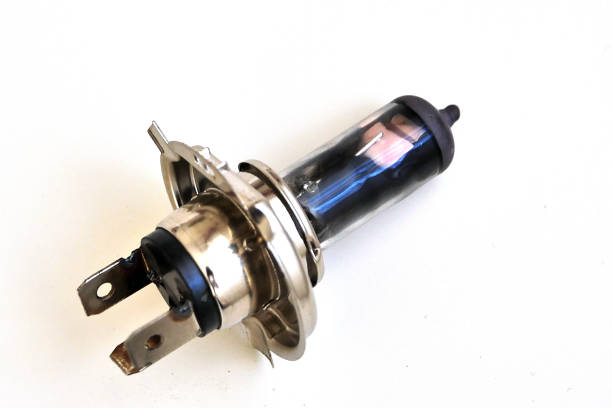Maintaining a vehicle is not just about changing the oil or checking the tires. An often overlooked but essential part of vehicle maintenance is keeping the fuel system clean, especially the fuel injectors. Over time, fuel injectors can become clogged with deposits that reduce performance and fuel efficiency. This is where fuel injector cleaners come into play. In this article, we’ll explore what fuel injector cleaners are, how they work, and whether they’re worth the investment.
What Are Fuel Injector Cleaners?
Fuel injector cleaners are chemical additives designed to clean the fuel injectors in your engine. Fuel injectors play a crucial role in your vehicle’s fuel system by delivering a precise amount of fuel to the engine’s combustion chamber. Over time, carbon deposits and other impurities can build up in the injectors, leading to clogs and reduced performance.
Fuel injector cleaners are added to the fuel tank, where they mix with the gasoline or diesel and work to dissolve these deposits as the fuel passes through the injectors. This process helps to restore the injectors’ optimal spray pattern, improving fuel efficiency, engine performance, and reducing emissions.
How Do Fuel Injector Cleaners Work?
Fuel injector cleaners typically contain detergents and other chemicals, such as polyetheramine (PEA), polyisobutylene amine (PIBA), and polyisobutylene (PIB). Each of these chemicals plays a specific role in breaking down and removing deposits from the fuel injectors.
- Polyetheramine (PEA): Considered one of the most effective detergents in fuel injector cleaners, PEA is particularly good at cleaning high-temperature deposits. It remains stable at high temperatures, making it effective at dissolving carbon buildup in the injectors and combustion chamber.
- Polyisobutylene amine (PIBA): Another commonly used detergent, PIBA is effective at cleaning lower-temperature deposits and is often used in conjunction with PEA for a more comprehensive cleaning solution.
- Polyisobutylene (PIB): PIB is often included in fuel injector cleaners to improve fuel stability and reduce engine knock. While not as effective as PEA in cleaning deposits, it complements the overall formulation by providing additional benefits to engine performance.
These chemicals work by breaking down the carbon deposits into smaller particles, which are then expelled through the exhaust system. This process not only cleans the fuel injectors but also helps to clean other components of the fuel system, including the intake valves and combustion chamber.
Benefits of Using Fuel Injector Cleaners
Using fuel injector cleaners can provide several benefits, especially for older vehicles or those that have not had regular maintenance. Here are some of the key advantages:
- Improved Fuel Efficiency: One of the most noticeable benefits of using a fuel injector cleaner is improved fuel efficiency. Clogged injectors can cause uneven fuel delivery, leading to increased fuel consumption. By cleaning the injectors, you can restore optimal fuel flow and potentially improve gas mileage.
- Enhanced Engine Performance: Clean fuel injectors ensure that the right amount of fuel is delivered to the engine, which can result in smoother acceleration, better throttle response, and more consistent engine performance.
- Reduced Emissions: Fuel injector cleaners help reduce carbon deposits that contribute to harmful emissions. A cleaner fuel system allows for more complete combustion, reducing the output of pollutants such as carbon monoxide and hydrocarbons.
- Prevention of Engine Knock: Deposits in the combustion chamber can lead to engine knock or pre-ignition, which can cause damage over time. Fuel injector cleaners can help prevent this by removing deposits that contribute to knocking.
- Extended Engine Life: Regular use of fuel injector cleaners can help maintain the health of your engine by preventing buildup and ensuring that all components of the fuel system are functioning properly. This can contribute to a longer engine lifespan and reduce the need for costly repairs.
When Should You Use a Fuel Injector Cleaner?
While fuel injector cleaners can be beneficial, they are not always necessary for every vehicle or situation. Here are some scenarios in which using a fuel injector cleaner might be appropriate:
- Older Vehicles: Older vehicles with higher mileage are more likely to have accumulated deposits in the fuel injectors and combustion chamber. Using a fuel injector cleaner can help remove these deposits and restore performance.
- Vehicles with Rough Idling or Poor Acceleration: If your vehicle is experiencing rough idling, hesitation during acceleration, or reduced fuel efficiency, a clogged fuel injector might be the culprit. In such cases, a fuel injector cleaner could help resolve these issues.
- Preventive Maintenance: Some drivers prefer to use fuel injector cleaners as part of their regular maintenance routine, usually every 3,000 to 5,000 miles, to keep the fuel system clean and prevent deposits from forming.
- After Long Periods of Inactivity: If a vehicle has been sitting unused for an extended period, fuel can degrade and form deposits in the injectors. Using a fuel injector cleaner can help clear out any deposits that may have formed during the downtime.
Do Fuel Injector Cleaners Really Work?

The effectiveness of fuel injector cleaners has been a topic of debate among automotive experts and enthusiasts. While many drivers report noticeable improvements in fuel efficiency and engine performance after using a fuel injector cleaner, others argue that modern engines and fuels already have built-in detergents that minimize deposit formation.
Here are some factors that can affect the effectiveness of fuel injector cleaners:
- Type of Fuel Injector Cleaner: Not all fuel injector cleaners are created equal. Products containing high concentrations of PEA are generally considered the most effective at removing deposits. Reading product labels and reviews can help you choose a high-quality cleaner.
- Condition of the Vehicle: The age and condition of the vehicle can also impact the effectiveness of a fuel injector cleaner. For newer vehicles with lower mileage and regular maintenance, the benefits may be less noticeable. However, for older vehicles with neglected maintenance, the improvement can be significant.
- Usage Patterns: Vehicles that are primarily used for short trips or that experience frequent stop-and-go driving are more likely to benefit from a fuel injector cleaner. These conditions can lead to incomplete combustion and deposit formation, making a cleaner more effective.
- Fuel Quality: The quality of fuel you use can also affect the need for a fuel injector cleaner. High-quality fuels with adequate detergents may reduce the need for additional additives. However, if you frequently use lower-quality fuels, a cleaner may be more beneficial.
Conclusion: Is a Fuel Injector Cleaner Worth It?
In conclusion, fuel injector cleaners can be a valuable tool in maintaining your vehicle’s performance and efficiency, particularly for older vehicles or those experiencing specific issues related to fuel injector deposits. However, they are not a cure-all solution and should be used as part of a comprehensive maintenance strategy.
For most drivers, using a fuel injector cleaner periodically—especially if you notice symptoms of clogged injectors or if you drive under conditions that can lead to deposit formation—can be beneficial. As always, it’s best to consult your vehicle’s owner manual or a trusted mechanic to determine the most appropriate maintenance routine for your specific vehicle.
While fuel injector cleaners are relatively inexpensive, their benefits can add up over time, potentially saving you money on fuel and preventing costly repairs. So, the next time you’re at the auto parts store, consider picking up a bottle of fuel injector cleaner as a small investment in your vehicle’s long-term health.




